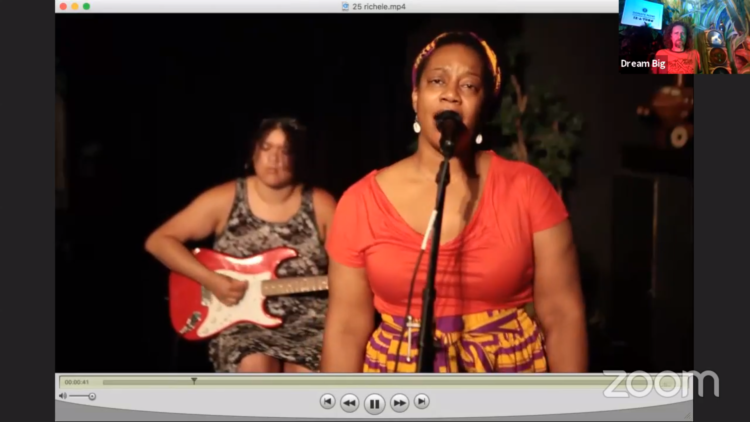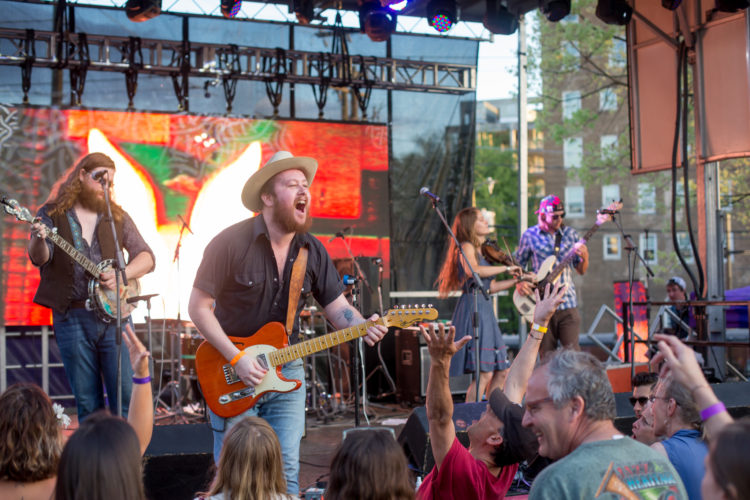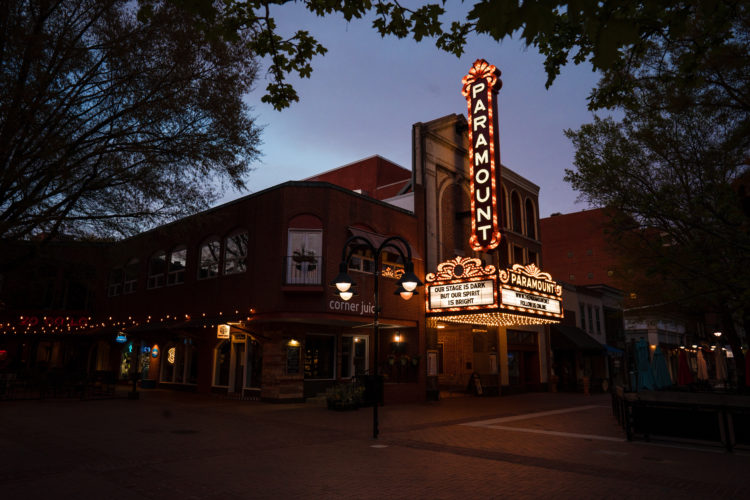Normally, summer is the busiest season for live entertainment. For businesses and performing artists who depend on bringing together large, densely-packed crowds, the pandemic has upended their plans for the foreseeable future. With the cancellation of festivals, concerts and other large events, countless workers have found themselves unemployed, while venues and other entertainment businesses have taken a dire financial hit. The Hollywood Reporter cites an estimated $160 billion loss in the global entertainment sector over the next five years. Nobody knows when and how these events will be able to resume — and even once they can legally resume, many anticipate ongoing uncertainty around the safety of bringing together a large crowd.
During this time, venues and other entertainment businesses are working to come up with the safest ways to resume operations. Artists are finding new ways to engage virtually with fans and with one another. For many, this isn’t just about finding ways to make it through this time financially, but also about re-creating a sense of community amid social distancing at a time when people need it most.
In this multi-part series, Charlottesville Tomorrow intern Marie Ungar spoke with community members in the local entertainment industry about how they have been affected by the pandemic, how they are adapting and forging ahead, and what this means for Charlottesville.
Part One: Live music venues

Richelle Claiborne and Harli Saxon performed during the IX-a-thon.
Credit: Courtesy Susan Krischel
“Normally, in April and May, we’re doing nothing but work — having four or five events a week, thousands of people in the venue,” said Kirby Hutto, the general manager of the Sprint Pavilion. “Normally, all of my seasonal part-time staff are on the clock and making money, and there’s just there’s really no time to do anything other than work because as you’re hosting the events now, you’re also planning the events for June, July, August and into the fall. So this is bizarre to be sitting around, doing nothing right now.”
Part Two: Charlottesville-based artists

Chamomile and Whiskey performing at the 2017 Tom Tom Festival.
Credit: Rich Tarbell, courtesy Koda Kerl
For Charlottesville-based musical artists, the cancellation of live shows has had varied impacts. Full-time performers struggle to figure out a financially stable way to continue creating, while part-time performers still feel the weight of being unable to connect with audiences. For some, the pandemic has derailed long-built momentum, while for others it has provided valuable time to focus on writing and reflect on their trajectories as artists.
Part Three: Theaters and performing artists find ways to weather shutdown

Credit: Photo by Rob Garland
With events cancelled and the work of volunteers paused, local theater nonprofits are finding new ways to connect with the community and calling on donors to help them outlast the pandemic. These organizations are figuring out their next steps — whether planning how to reopen safely in person, navigating a new world of online content, or waiting the pandemic out.










